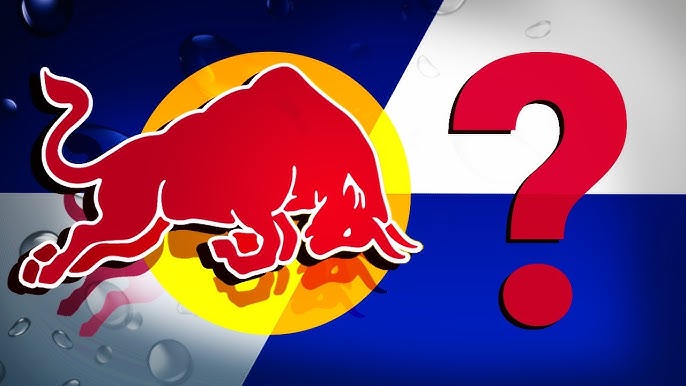Did You Know That Red Bull is Not a Beverage Company But a Marketing Machine That Made Millions in the Name of Beverage?

Building a Global Brand Beyond the Beverage
When you think of Red Bull, you probably picture a fizzy, energy-boosting drink that “gives you wings.” However, Red Bull represents far more than just a beverage company. In reality, Red Bull brand strategy operates as a marketing powerhouse that has mastered the art of branding and revolutionized the way businesses promote their products.
The Red Bull Marketing Machine
Dietrich Mateschitz founded Red Bull in 1987, drawing inspiration from a Thai energy drink. However, from the beginning, Red Bull focused not only on selling a drink—but also on creating an experience, a lifestyle, and a culture around its brand. The company invests heavily in marketing, sponsors extreme sports events, and creates its own media content to position itself as more than just a beverage—as a brand synonymous with energy, adrenaline, and adventure.
How Red Bull Uses Marketing to Drive Success
Sponsorships and Events: Sponsorships and Events: Red Bull sponsors a wide range of extreme sports events, from cliff diving to air racing, and even owns sports teams like Red Bull Racing in Formula 1. These sponsorships align the brand with high-energy, thrilling activities, reinforcing its image as the drink for those who live on the edge.
Content Creation: Red Bull Media House produces content that aligns with its brand image, including documentaries, live broadcasts of sporting events, and even feature films. This content showcases not just the drink but the lifestyle and values that Red Bull promotes—pushing limits, chasing adventure, and embracing the extreme.
Viral Marketing: The company executes viral marketing campaigns, like the famous Red Bull Stratos project, where Felix Baumgartner jumped from the edge of space, broke world records, and generated massive global buzz for the brand. This event alone delivered billions of media impressions worldwide, far beyond the reach of traditional advertising.
Experiential Marketing: Red Bull goes beyond traditional advertising by creating memorable experiences for consumers. Through hosting events like Red Bull Music Festivals or building physical spaces like the Red Bull Studios, the brand builds environments where consumers can interact with its identity in a meaningful way.
The Results: Millions Made in the Name of Beverage
Through these innovative marketing strategies, Red Bull established a brand that extends far beyond the product it sells. The company sells approximately 7.5 billion cans a year, but its true success lies in the value of its brand, which Red Bull built on lifestyle marketing rather than just beverage sales. This approach helps Red Bull maintain a dominant position in the market, even as competitors emerge.
Why Red Bull’s Strategy Matters to Your Business
Red Bull brand strategy demonstrates the power of branding and marketing. By creating a brand that resonates with a specific lifestyle and identity, Red Bull builds a loyal customer base that goes beyond just the product. For businesses looking to succeed, especially in crowded markets, Red Bull’s approach offers valuable lessons. It’s not just about what you sell, but how you sell it—and the experience you create around your brand.
If your business taps into the emotions, values, and aspirations of your target audience, as Red Bull has done, you can create a brand that stands out, drives loyalty, and ultimately leads to success.
What makes Red Bull brand strategy so effective is its ability to transcend the limitations of its product category. While many beverage companies rely heavily on retail placement, pricing tactics, or traditional ads, Red Bull has created an ecosystem where its drink is just one part of a larger experience. By tapping into high-adrenaline sports, music, and adventure cultures, the brand connects with consumers on an emotional and aspirational level. This approach not only attracts attention but also fosters deep brand loyalty among its audience.
A striking example of Red Bull brand strategy in action is its ownership of sports teams and venues. From Red Bull Salzburg in football to Red Bull Racing in Formula 1, these investments create year-round visibility and engagement opportunities. The brand isn’t just featured—it’s embedded into the narrative of elite performance. These platforms are not only marketing channels but also community builders, forming a lifestyle that fans and consumers want to be part of.
Red Bull also emphasizes authenticity and storytelling. Instead of pushing a product, it champions individuals and teams who embody the values of fearlessness, ambition, and high performance. By showcasing these stories through Red Bull TV, YouTube, and social media, the company ensures continuous brand reinforcement without relying solely on paid advertising. This storytelling builds trust and encourages consumers to see Red Bull as more than a drink—it becomes a badge of identity.
Building a Global Brand Beyond the Beverage
What makes Red Bull brand strategy so effective is its ability to transcend the limitations of its product category. While many beverage companies rely heavily on retail placement, pricing tactics, or traditional ads, Red Bull has created an ecosystem where its drink is just one part of a larger experience. By tapping into high-adrenaline sports, music, and adventure cultures, the brand connects with consumers on an emotional and aspirational level. This approach not only attracts attention but also fosters deep brand loyalty among its audience.
A striking example of Red Bull brand strategy in action is its ownership of sports teams and venues. From Red Bull Salzburg in football to Red Bull Racing in Formula 1, these investments create year-round visibility and engagement opportunities. The brand isn’t just featured—it’s embedded into the narrative of elite performance. These platforms are not only marketing channels but also community builders, forming a lifestyle that fans and consumers want to be part of.
Red Bull also emphasizes authenticity and storytelling. Instead of pushing a product, it champions individuals and teams who embody the values of fearlessness, ambition, and high performance. By showcasing these stories through Red Bull TV, YouTube, and social media, the company ensures continuous brand reinforcement without relying solely on paid advertising. This storytelling builds trust and encourages consumers to see Red Bull as more than a drink—it becomes a badge of identity.
Lessons for Aspiring Brands and Entrepreneurs
The success of Red Bull brand strategy offers actionable insights for businesses of all sizes. In a world oversaturated with products and services, brands that resonate emotionally and culturally gain a competitive edge. Your product may be excellent, but if it doesn’t connect with a specific lifestyle or solve a deeper need, it risks becoming just another item on a shelf.
Businesses can learn from Red Bull by identifying their target audience’s passions and integrating their brand into those spaces. Creating immersive experiences, producing valuable content, and aligning with aspirational values are steps that build a powerful identity. The key lies in consistency—Red Bull has been telling the same brand story for decades, and its payoff is global recognition and unmatched brand loyalty.
In essence, the brilliance of Red Bull brand strategy lies not just in selling energy drinks, but in energizing a culture. And that’s the kind of strategy that leads to long-term success.
Conclusion
The Red Bull brand strategy proves that success lies in selling a lifestyle, not just a product. By aligning with adventure, energy, and culture, Red Bull built a brand that inspires and connects. Businesses that focus on emotional engagement and immersive experiences can create lasting loyalty and stand out in even the most competitive markets.
